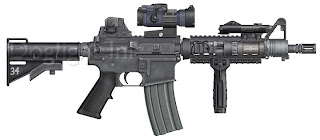
A salute is a gesture or other action used to display respect. Salutes are primarily associated with armed forces. It is a unique exchange of greetings between military personnel. In military traditions of various times and places, there have been numerous methods of performing salutes, using hand gestures, cannon or rifle shots, hoisting of flags, removal of headgear, or other means of showing respect or deference. Only officers are saluted, and the salute is to the commission they carry from their respective commanders-in-chief representing the President, not the officer themselves. When the presence of enemy snipers is suspected, military salutes are generally forbidden, since the enemy may use them to recognize officers as valuable targets.
Proper execution is described in the top photo. While I was in basic training a lifetime ago, the execution of an improper salute was strongly looked down upon. That means push-ups. I learned quickly how to do it properly, again, as described above. I have been in Iraq since early February of this year, 2009. So far I can't count the different return salutes I have received after rendering the proper courtesy. Some are completely perpendicular to the ground as the elbow seems sewn to the officer's side. Often, the thumb is protruding which was the most common mistake among new recruits. Many times, the fingers are not held tightly together and it seems more like an odd wave than a salute. Some salutes resemble karate chops as opposed to the salute. Some are executed with lightening speed, as if the officer wants to get it over with as quickly as possible. Some of them resemble a British salute which is executed with the palm outward. All of these, and the many other variants, are wrong. I'm not sure what the solution to this is. If we walked around constantly correcting our superior officers, not only would we be wasting our duty time, but we would also be alienating a large portion of the commissioned population - not in our best interest. Perhaps this is a view of how the basics of Soldiering have been allowed to fall by the wayside in an effort to fill our ranks. Something so simple, yet so difficult to master. In case you can't read the photo above, here are the instructions for the salute.
1. Raise right hand sharply, fingers and thumb extended and joined, palm facing down.
2. Place tip of right forefinger on the rim of visor slightly to the right of the right eye.
3. The outer edge of the hand is barely canted downward.
4. Hand and wrist are straight.
5. Elbow inclined, slightly forward.
6. Upper arm is horizontal (parallel) to the ground.
7. To finish, the arm is simply dropped to the side.
Any questions?



